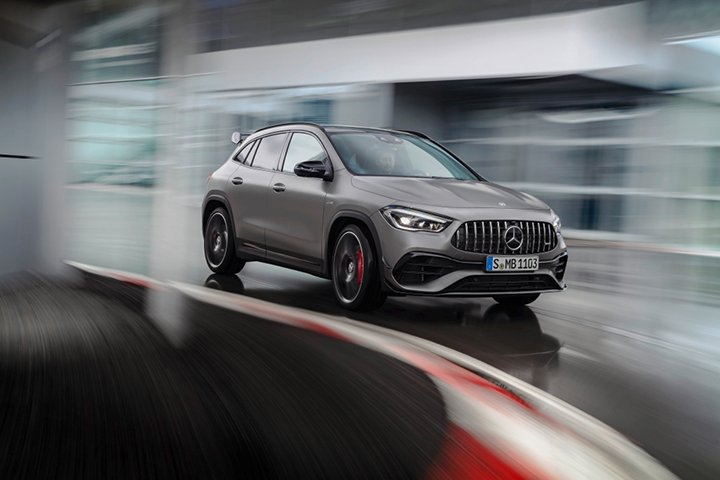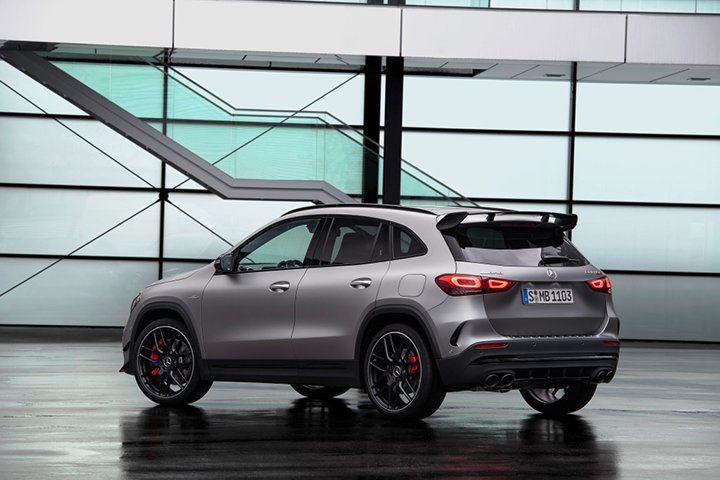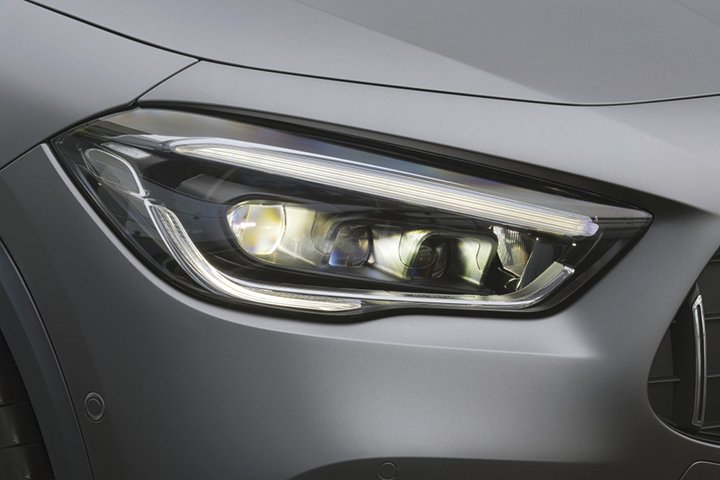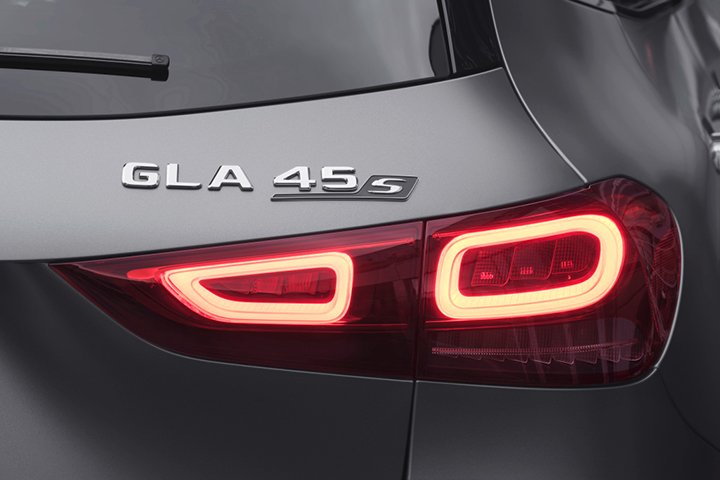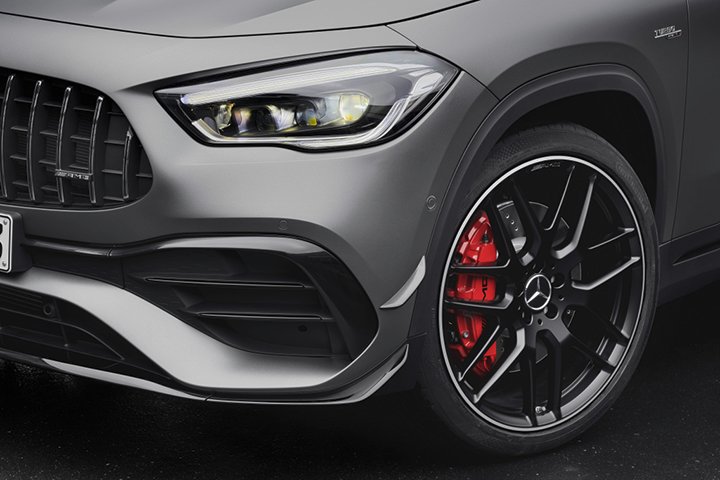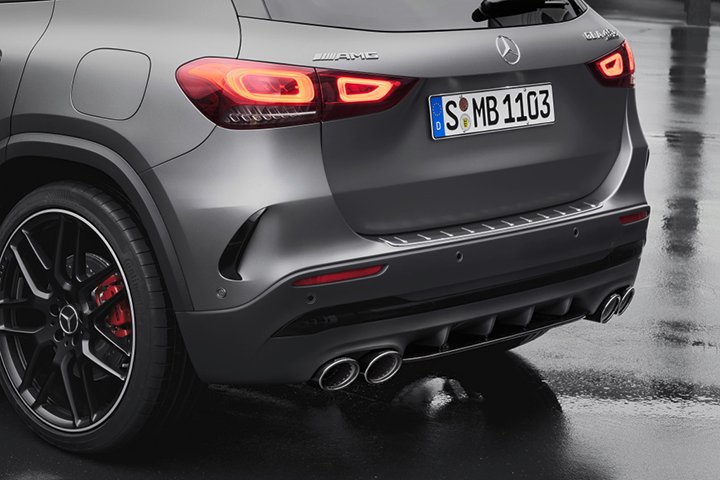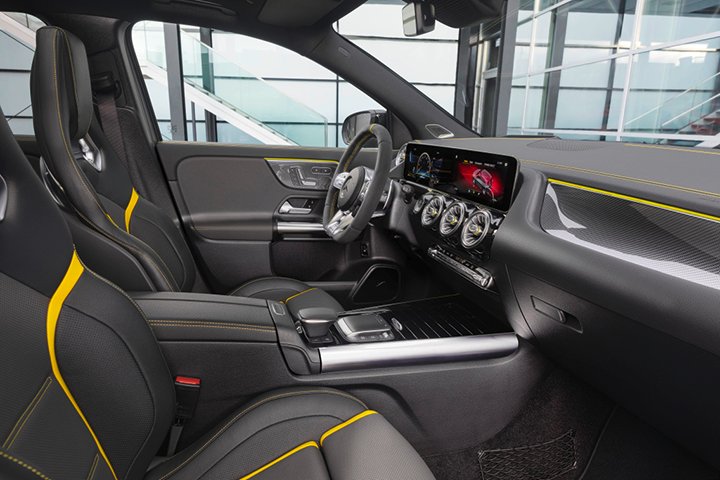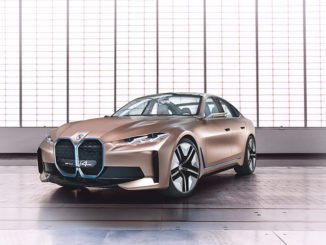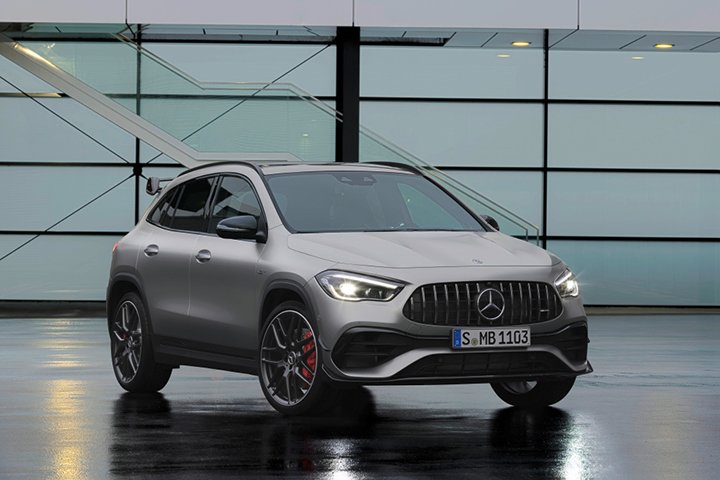
New body and enhancements, new engine, new 8-speed gearbox and new rear axle differential
The Mercedes-AMG GLA 45 has been of the company’s best selling models since its first debut in April 2013. And now, there’s a sequel to the GLA 45 story. Announced today, the second-generation Mercedes-AMG GLA 4Matic+ high-performance compact crossover SUV now comes with the new M139 turbocharged four-cylinder engine, as well as the new 8-speed automatic transmission. Moreover, it gets a trick new rear differential.
Everything about the gen-2 GLA 45 is all about driving. And like most AMG models, the Mercedes-AMG GLA comes in two trims, the base 45 and the 45 S. Both of which makes two different power outputs, respectively making 382 bhp and 415 bhp. Performance-wise, both cars aren’t too far off. The base 45 goes from 0-100 km/h in 4.4 seconds, while the 45 S does it in 4.3 seconds. The top speed for both cars, however, is electronically limited to 250 km/h.
The new engines now have its exhaust ports facing rearwards, and intake facing forward as opposed to the older four-cylinder engine. This improves air ducting with shorter distances and fewer diversions. This not only improves engine response but also help to make the engine packaging more compact. And like all AMG engines, the new engine is also assembled by hand in the AMG engine production facility in Affalterbach.
The new engine is mated to a new 8-speed AMG Speedshift DCT 8G dual-clutch transmission. Mercedes-AMG says that the ratios in the new DCT gearbox are geared for acceleration and spaced for fast shifting. Moreover, the gearbox also comes with the ‘Race-Start’ launch control function. And will accommodate the ECO start/stop and “gliding” functions as well.
Transferring that much power to all four wheels while providing drivability is not an easy feat. The 4 Matic+ all-wheel-drive system features an electromechanical centre differential which divides power to the front and rear wheels. This is dependent on the driving speed, lateral and longitudinal acceleration as well as the steering angle. But also, the difference in rotational speed between the individual wheels, the gear selection and the accelerator position.
Furthermore, the new AMG Torque Control rear axle differential splits power between the left and right rear wheels via two electronically controlled multi-disc clutches. Mercedes-AMG says that this new rear differential improves traction during extreme cornering manoeuvres.
Besides the drivetrain, the body has seen revisions as well. The body shell is extensively reinforced with a lightweight aluminium plate bolted underneath the engine to increase the front end torsional rigidity. In addition, diagonal struts at the front and rear of the underbody further improve rigidity. The result as according to Mercedes-AMG is that the GLA 45 now sees reduced longitudinal and lateral-torsional movement. Thus less rolling and pitching motion during cornering, braking and load changes.
Moreover, the suspension components have been thoroughly revised as well. The front McPherson layout now features a new axle geometry for reduced torque steer, and new aluminium wishbone to reduce unsprung mass. The brake callipers are radially bolted for added stability, and the front axle carrier is rigidly attached. Likewise, the 4-link rear suspension is rigidly connected to the body via a rear axle carrier.
Speaking of which, the brakes fitted in the AMG GLA 45 are 4-piston monobloc fixed front callipers with 350 x 34-millimetre discs, while at the rear axle 1-piston floating callipers with 330 x 22-millimetre discs. While the GLA 45 S is equipped with larger 6-piston fixed callipers and 360 x 36-millimetre brake discs at the front.
Other noteworthy new features added to the second-generation Mercedes-AMG GLA 45 models are the variable-ratio steering wheel, MBUX infotainment system with AMG specific functions, as well as AMG Track Pace and the AMG Performance steering wheel with steering-wheel buttons in the S model.
Technical data at a glance
| Mercedes-AMG GLA 45 4MATIC+ | Mercedes-AMG GLA 45 S 4MATIC+ | |
| Engine | 2.0-litre 4 in-line with roller bearing twin-scroll turbocharger |
2.0-litre 4 in-line with roller bearing twin-scroll turbocharger |
| Displacement | 1991 cc | 1991 cc |
| Max. output | 382 bhp at 6500 rpm | 415 bhp at 6750 rpm |
| Peak torque | 480 Nm at 4750-5000 rpm | 500 Nm at 5000-5250 rpm |
| Drive | AMG Performance 4MATIC+ fully variable all-wheel drive with AMG TORQUE CONTROL |
AMG Performance 4MATIC+ fully variable all-wheel drive with AMG TORQUE CONTROL |
| Transmission | AMG SPEEDSHIFT DCT 8G dual-clutch transmission |
AMG SPEEDSHIFT DCT 8G dual-clutch transmission |
| Combined fuel consumption |
9.2-9.1 l/100 km | 9.3-9.2 l/100 km |
| Combined CO2 emissions | 211-209 g/km | 212-210 g/km |
| Efficiency class | F | E |
| Acceleration 0-100 km/h | 4.4 s | 4.3 s |
| Top speed | 250 km/h | 270 km/h |
The exterior of the new GLA 45 features many of the AMG’s styling features such as the powerdomes and the AMG-specific radiator grille with the vertical slats. This is flanked by LED High-Performance headlamps. The car’s stance is enhanced by the flared wheel arches and large air intakes with silver chrome inserts. The front splitter optimises airflow and thus aerodynamic performance.
The GLA 45 rides on 19-inch light-alloy wheels, while the S is fitted with 20-inch wheels in a 5-twin-spoke design. 21-inch light-alloy wheels are also available as an option. At the rear, the GLA 45 is identifiable with two round 82mm twin tailpipes and the wide rear apron.
The GLA 45 S is distinguished by larger oval exhaust tailpipes with a diameter of 90 mm. The diffuser with four vertical fins contributes to the enhanced aerodynamic performance. While the airflow break-away edge on the roof spoiler rounds off the profile to the rear.





